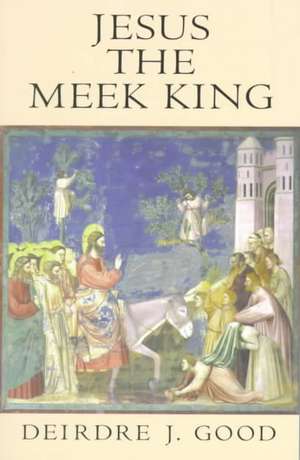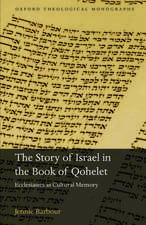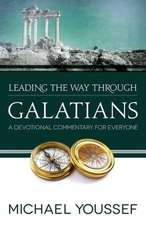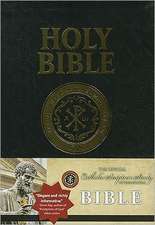Jesus the Meek King
Autor Deirdre J. Gooden Limba Engleză Paperback – 31 mai 1999
Preț: 182.45 lei
Preț vechi: 239.53 lei
-24% Nou
Puncte Express: 274
Preț estimativ în valută:
34.94€ • 36.00$ • 29.27£
34.94€ • 36.00$ • 29.27£
Carte tipărită la comandă
Livrare economică 24 februarie-10 martie
Preluare comenzi: 021 569.72.76
Specificații
ISBN-13: 9781563382840
ISBN-10: 1563382849
Pagini: 144
Dimensiuni: 140 x 216 x 10 mm
Greutate: 0.21 kg
Editura: Continuum International Publishing Group Ltd.
ISBN-10: 1563382849
Pagini: 144
Dimensiuni: 140 x 216 x 10 mm
Greutate: 0.21 kg
Editura: Continuum International Publishing Group Ltd.
Textul de pe ultima copertă
Most recent books about Jesus focus on history and biography. This book, however, focuses on culturally specific understandings of humility and meekness. Jesus the Meek King is a study of kingship in Matthew's Gospel that, unlike similar studies embedded within various commentaries on this Gospel, links meekness and kingship, placing both within the context of the Hellenistic world. In addition, it explores the specific virtue of "meekness" in Paul and in English literature from Tyndale to the present.
Modern readers probably understand Jesus' use of the term "meek" to commend and exemplify submissive or humble behavior. "The meek" may even be seen unfavorably as those likely to submit tamely to oppression of injury. This provocative volume, however, proposes that Jesus as the meek king is better and more accurately understood as exercising the virtue of "disciplined calmness".








